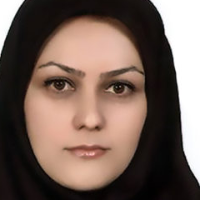Lexical and Conceptual Abnormalities in The translation of fiction and drama texts From Arabic to Farsi
One of the difficulties for translators is facing with the same words and their application in language.Translator uses them interchangeably only under the pretext of semantic similarity between words. The usersentence does not have the correct meaning, because of the hidden differences in their underlying meaning. Accordingly, choice of equal and suitable words is the biggest challenge for translator beside acquaintance of translator with the language and culture of other nations and it is his skills.On the other hand, sentence meaning in a dramatic narrative text is including: A set of logical meanings of sentence forming elementsand the meaning ofspeech is the sense that every sentence is allocated to its according to the purpose of the speaker of expression that sentence. Because the roles and dialogue changes with regard to persons and positions in sentence and text, the translator must see what equality is more suitable for desired. Interpretation in the form of the chosen expression or structure for translation of the sentence (Arabic) in Persian language. In this article, we review examples of translation of the narrative and dramatic textsbased on the finding of lexical equals and we search lexical differences (including: Referential, Experimental, Semantic units, Conference, Implied, and Polysemy) and verbal (including: meaning of the words and meaning of the sentence). Finally, we suggest our translation for any of the dramatic and storied sentences. The results show that there are different ways for finding of equivalent that in the meantime, dynamic finding equal is more impressive.
Narrative , dramatic texts , Translations , Norms , Anomalies , words , Concept
-
Feminist criticism of the novel "Hawá" by "Hayfa Baytar" based on the theory of Simone de Beauvoir
, Abdulbasit Arab Yousefabadi*
Iranian Association of Arabic Language and Literature, -
Translation of Cultural Elements in the Arabic Subtitle of the movie "The Book of the Law" based on the model of Wojtasie wicz
Fatemeh Mirzavand, *
Comparative Literature Research,


